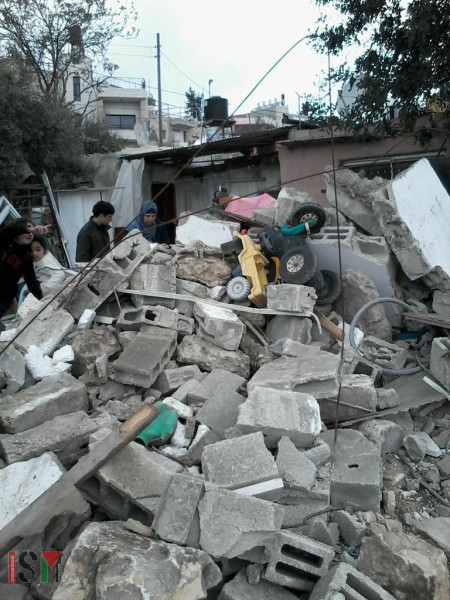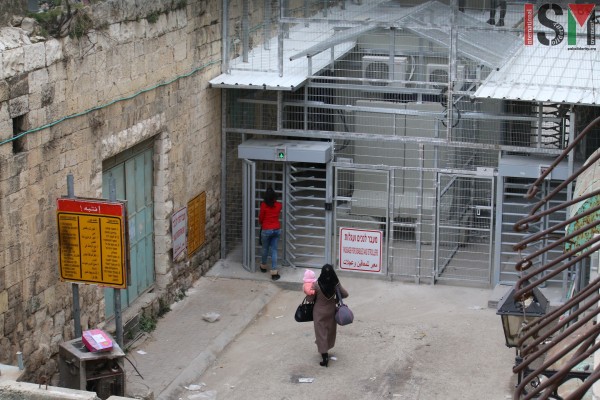Tag: International law
-
Jerusalem family threatened with demolition order
8th February 2016 | International Solidarity Movement, al-Quds team | Jerusalem, occupied Palestine Israeli authorities on 2nd February 2016 issued a demolition order for the fence and gate surrounding the Amro family’s home in Wadi al-Joz in occupied East Jerusalem. The family was given 48 hours to remove the fence and gate before an imminent…
-
100 days of collective punishment for Hebron residents
7th February 2016 | International Solidarity Movement | Hebron, occupied Palestine February 8th marks one hundred days since Israeli forces declared the Tel Rumeida neighborhood and the adjacent portion of Shuhada Street a “closed military zone,” requiring residents to register with the Israeli military and be assigned numbers in order to be allowed to access…
-
Closed military zone in Shuhada Street and Tel Rumeida extended yet another month
6th February 2016 | International Solidarity Movement, Al-Khalil Team | Hebron, occupied Palestine Since the 1st of November 2015 the Tel Rumeida area and Shuhada Street in occupied Al-Khalil (Hebron) have been declared a ‘closed military zone’. The first declaration of the closure was for one month, but since then the order has been extended…



